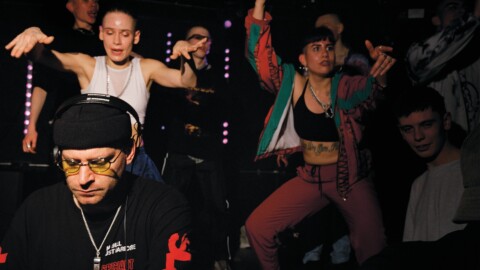In the sphere of activism, every art form has been used as a medium to communicate important social messages. Music, being one of the most universal languages, is a powerful tool in catalyzing social change. Over the years, genres from folk to hip-hop have been used to amplify social issues and foster change. More recently, electronic music has entered the scene as an unexpected, yet potent vehicle for activism. This new movement, known as Electro-Activism, harnesses the global popularity and unique characteristics of electronic music to inspire and drive social and political change.
Unleashing the Power of Electro-Activism
Electronic music, with its roots in underground subcultures, has always been linked to social and political countermovements. Its digital nature allows it to bypass traditional distribution channels, making it accessible to people from all walks of life. The advent of Electro-Activism takes this a step further, transforming the genre into a platform that champions social change and promotes awareness about critical global issues.
Electro-Activism can be seen as a response to the rise of technological advancements and the digitalization of society. With social media platforms and music streaming services, electronic music can be shared and spread instantaneously, reaching a global audience. This accessibility is crucial in disseminating messages of change, acting as a digital megaphone for social and political issues.
This form of activism also allows for a unique form of engagement. Electronic music events can serve as a space for political discussion and community organizing. These gatherings can act as a physical manifestation of the digital community, fostering a sense of unity and shared purpose among participants.
Electro-Activism is not just about the music, but the message contained within it. Lyrics, song titles, and even album artwork can all be used to communicate important social and political messages. This doesn’t just apply to musicians – DJs, producers, and event organizers can all play a role in promoting and advocating for social change through this medium.
Finally, the global popularity of electronic music provides fuel for this movement. With millions of fans around the world, electronic music has the potential to reach a vast audience. This means that the messages of social change disseminated through this medium can have a significant impact, encouraging dialogue and fostering understanding on a global scale.
Electronic Music: An Unexpected Vehicle for Social Change
Electronic music has always pushed the boundaries of what is considered ‘conventional’. From its inception, it has rejected traditional music structures and embraced new technologies and techniques. This spirit of innovation and resistance makes it a natural vehicle for social change.
The genre’s roots in the underground music scene have forged a strong connection with countercultures and social movements. Electronic music’s history is intertwined with the fight for LGBTQ+ rights, racial equality, and the anti-war movement, among others.
The digital nature of electronic music also makes it an ideal medium for social change. It can be created, shared, and enjoyed without physical boundaries, allowing messages to reach audiences globally. This unrestricted access ensures that social messages embedded in the music can have a wide-reaching impact.
Moreover, the electronic music community is diverse and inclusive. It welcomes people from all backgrounds, creating a space where different perspectives and voices can be heard. This diversity is critical in fostering a culture of inclusivity and understanding, which are essential qualities for social change movements.
Electronic music also has a unique capacity to inspire and energize. Its rhythmic beats and catchy melodies can motivate listeners, galvanizing them into action. This emotional connection can be a powerful catalyst for social change, driving individuals to engage with causes and movements that they may not have otherwise considered.
Lastly, the digitalization of society and the rise of social media platforms have amplified the impact of Electro-Activism. Electronic music can now be easily shared and spread, reaching a global audience and inspiring collective action.
The Influence of Electronic Music on Activism
Electronic music and activism have a synergistic relationship. The genre has not only provided a voice for marginalized communities but has also fostered a culture of activism within the electronic music scene.
On one hand, electronic music has given activists a new means to convey their messages. From environmental sustainability to racial equality, electronic music has been used to highlight a range of important issues. The immediacy of this medium allows activists to engage with audiences on a visceral level, fostering empathy and understanding.
On the other hand, the principles of the electronic music scene have helped shape the nature of activism within this community. The values of inclusivity, diversity, and innovation commonly found in the genre have translated into the social movements associated with it. This has resulted in a form of activism that is dynamic, engaging, and collaborative.
Moreover, electronic music has helped to democratize activism. Its digital nature allows for easy distribution and consumption, making activism accessible for more people. It has given a platform to voices that might have otherwise gone unheard, fostering a greater sense of community and shared purpose.
Electronic music has also played a significant role in raising awareness about global issues. Many musicians and DJs have used their influence to highlight critical social and political issues, encouraging their listeners to get involved. This has created a culture of social responsibility within the electronic music community, fostering a greater commitment to activism.
Finally, the influence of electronic music on activism is not just about raising awareness. It’s about inspiring action. The genre’s infectious beats and emotive melodies have the power to galvanize listeners, encouraging them to take tangible steps towards social change.
Case Studies: How Electro-Activism is Making a Difference
There are numerous examples of Electro-Activism making a significant impact on various social issues. These case studies highlight the transformative power of this movement and its potential for social change.
One notable example is the electronic music collective, Discwoman. Established in 2014, the group seeks to promote and support women, non-binary, and transgender individuals within the electronic music industry. Their work has not only raised awareness about the lack of representation in the industry but has also provided a platform for marginalized voices.
Similarly, the group Dance for Refuge uses electronic music to raise funds and awareness for various refugee causes. They organize events featuring electronic music artists and donate the proceeds to organizations that support refugees. This initiative highlights the potential of electronic music to inspire action and tangible change.
Another example is the environmental advocacy group, Clean Scene. They aim to reduce the environmental impact of the electronic music industry. Through collaborations with artists and event organizers, they promote sustainable practices within the industry, demonstrating the potential of Electro-Activism to drive environmental change.
Furthermore, the Berlin-based collective, Room 4 Resistance, uses electronic music to promote LGBTQ+ rights and fight against discrimination. They host inclusive events and workshops, fostering a safe and supportive community for marginalized individuals within the electronic music scene.
These case studies demonstrate the potential of Electro-Activism as a powerful tool for social change. They highlight the transformative power of music and its capacity to inspire action, foster community, and effect real, tangible change.
With the rise of Electro-Activism, electronic music has proven itself to be more than just a form of entertainment. It is a powerful tool for social change, capable of mobilizing large audiences and inspiring action. It’s an unexpected vehicle, one with the potential to drive social and political change on a global scale. As electronic music continues to evolve, so too will its capacity for activism. Through the power of electronic music, we can foster a greater sense of empathy, understanding, and collective action, propelling society towards a more inclusive and equitable future.













